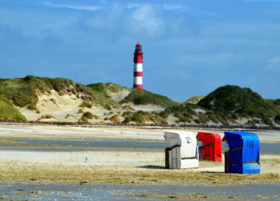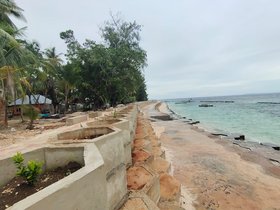SEATRAC: the Tragedy of Cognition: A comparative study on the role of cognitive biases in understanding sea level rise
The overall goal of the SEATRAC project is to investigate how major biases impact the recognition of and adaptation to sea level rise, from a cross-cultural perspective. To achieve this goal, we plan to gain a better understanding of 1) how people perceive sea level rise in general (and what possible cognitive biases they may have towards this threat), 2) the information sources people generally use, and 3) the place-specific adaptation options available, including the adaptations people have already undertaken (e.g. household adaptations). We conduct non-standardised interviews with different stakeholders (e.g. government, industry/business sector, etc.) and households to assess diverse perspectives ranging from opinion-leaders to the ordinary person. This will allow us, in a following step, to quantify the relative relevance of the various biases with surveys and behavioural economics experiments. In addition, with Agent-Based Modelling investigations, we will integrate the relevant information gained with surveys and economic experiments into a broader and more flexible simulative context, by developing a dynamic opinion model with the aim of capturing the influence of cognitive biases on opinion formation.
We will focus our attention on six major biases, which are recognised as the most relevant for environmental change. These are: (1) positive illusion bias, (2) cognitive dissonance, (3) fundamental attribution bias, (4) risk perception bias, (5) in-group bias, and (6) present bias. We will adopt a comparative approach by targeting biases related to sea level rise in two contrasting island groups: Wakatobi Islands (Sulawesi, Indonesia) and North Frisian Islands (Schleswig-Holstein, Germany). These two groups of islands are approximately similar in size, both have an important focus on the tourism industry, but are culturally, politically and social-ecologically very different.
By identifying the variation of the above-mentioned biases and their relative relevance, our project will shed light on the consequences of information processing and adaptation behaviour so that appropriate political, economic and social policies can be designed to mitigate and possibly prevent environmental disasters.


